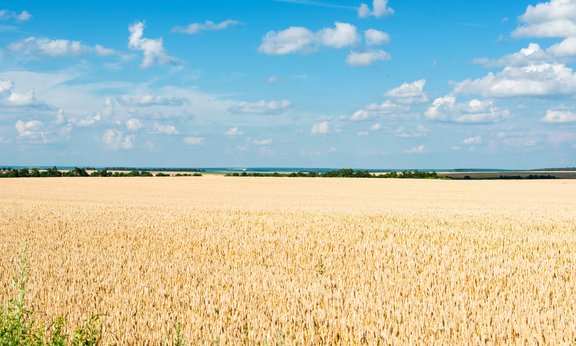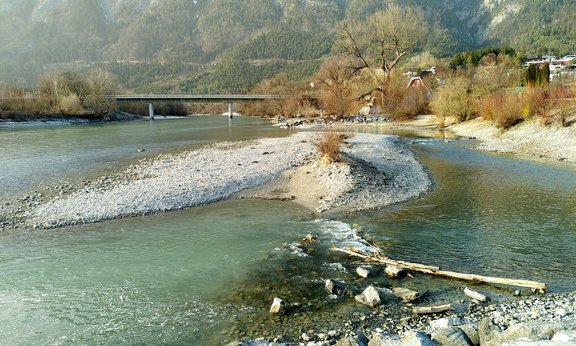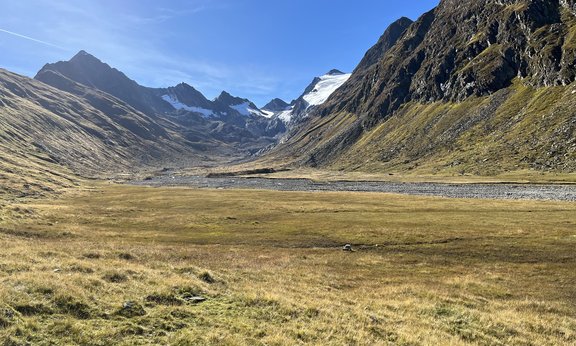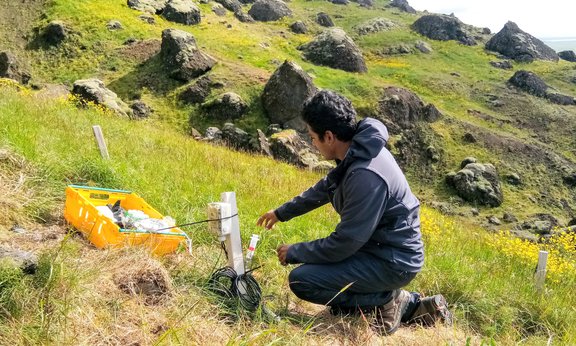Master’s Programme Environmental Management of Mountain Areas (EMMA)
Are you interested in sustainable agriculture and forestry, applied landscape planning, the cultural landscape in the Alpine region and do you want to understand socio-ecological systems?
This interdisciplinary and international programme is offered in cooperation with the Faculty of Science and Technology of the Free University of Bozen-Bolzano, Italy. The focus in this programme is to provide subject related topics including Alpine ecology, landscape ecology and planning, agriculture and forestry, wastewater and waste treatment, geoinformatics and environmental and resource management.
Study Code
UC 066 636
Admission
The admission to the study programme takes place by the rectorate. According to the cooperation agreement max. 35 students will be admitted per academic year. Information on the admission and the admission procedure will be found on the website of the Free University of Bozen-Bolzano and in the Study Manifesto of the Free University of Bozen-Bolzano.
Tuition fees are to be paid at the Free University of Bozen-Bolzano.
FAQ
Graduates possess highly specialized knowledge in the fields of mountain ecology, information technologies of landscape planning, ecological renaturation, planning and projecting in mountain areas. They are able to apply their knowledge in the field of advanced materials and at the intersections of other nature sciences by independently formulating and substantiating scientific arguments and finding innovative solutions to problems.
The double degree Master's Programme in Environmental Management of Mountain Areashas an interdisciplinary focus and is offered in cooperation with the Faculty of Science and Technology of the Free University of Bozen-Bolzano.
The programme is suitable for graduates of the bachelor's programmes in the fields of biology, environmental engineering, natural sciences and technologies, agriculture and forestry and graduates with a thematically relevant bachelor’s degree. A two-year study programme is offered. The official teaching language is English. Elective compulsory subjects are offered in English, German or Italian.
The first study year is to be completed at the Free University of Bozen-Bolzano and conveys a combination of natural science and technical skills and competences in nine compulsory modules. The second study year at the University of Innsbruck with two compulsory modules and several elective modules, gives students the possibility to focus on environmental and resource management, nature protection, landscape ecology and planning, agriculture and forestry as well as water and waste management. Regardless of the chosen specialization, students learn to research scientifically, to approach target- and results-oriented and to work project-related in the course of their master’s thesis.
The interdisciplinary and research-oriented master's programme opens up a wide range of occupational opportunities for graduates, in particular environmental assessment, monitoring and management of protected areas, projecting and eco-certification in the fields of agriculture and forestry, analysis and natural hazard assessment of hydrogeological origin, and elaboration of development plans of agricultural mountain areas, and scientific careers.
Graduates tracking: Shows which occupational fields students enter after graduation
Faculty of Biology Examination Office Information for students with disabilities
Curriculum
From the field

Biodiversität: Klima wird zum Hauptakteur
Den bislang umfassendsten Blick in die Vergangenheit und Zukunft der globalen Biodiversität wirft eine aktuelle Studie im Fachmagazin Science: Intensive Landnutzung verringerte die biologische Vielfalt um bis zu rund 10 % im Laufe des 20. Jahrhunderts. Bis 2050 könnte die Klimakrise zum Hauptfaktor für weitere Einbußen der Biodiversität werden. Lauren Talluto vom Institut für Ökologie ist Teil des Autor:innen-Teams.

Alpine Fließgewässer werden wärmer
Alpine Gewässer erwärmen sich schneller als erwartet und besonders in den Wintermonaten. Dies zeigt eine aktuelle Publikation des Innsbrucker Ökologen Georg Niedrist, in der er Langzeit-Messdaten des Hydrologischen Dienstes des Landes Tirol vom Inn und der Großache analysiert hat.

Hochalpine Tierarten brauchen mehr Schutzzonen
Schmelzende Gletscher aufgrund der Erderwärmung durch die Klimakrise haben massive Folgen für die Biodiversität im Alpenraum, wie ein internationales Forscher:innen-Team mit Beteiligung des Innsbrucker Ökologen Leopold Füreder nun erstmals für einen Zeitraum zwischen 2020 bis 2100 zeigt. Demnach droht zahlreichen wirbellosen Arten der Verlust ihrer Lebensräume. Die Forscher:innen plädieren für einen Ausbau von Schutzzonen auch in Gletschervorfeldern. Die Studie wurde in Nature Ecology & Evolution veröffentlicht.

Kohlenstoffkreislauf beschleunigt sich
Böden sind die größten natürlichen Kohlenstoffspeicher der Welt. Im hohen Norden ist dieser Speicher besonders groß, er ist dort aber auch besonders stark von der Klimaerwärmung betroffen. Eine kürzlich erschienene Studie eines internationalen Teams um Michael Bahn von der Universität Innsbruck untersuchte, wie die anhaltende Erwärmung die Aufnahme und Freisetzung von Kohlendioxid im Grasland der Subarktis beeinflusst. Als natürliche „Klimakammer“ nutzen die Wissenschaftler:innen ein geothermisch aktives Gebiet in Island.
Related studies

Atmospheric Sciences (Master)
Master of Science

Chemical Engineering (Master)
Diplom-Ingenieur*in



















